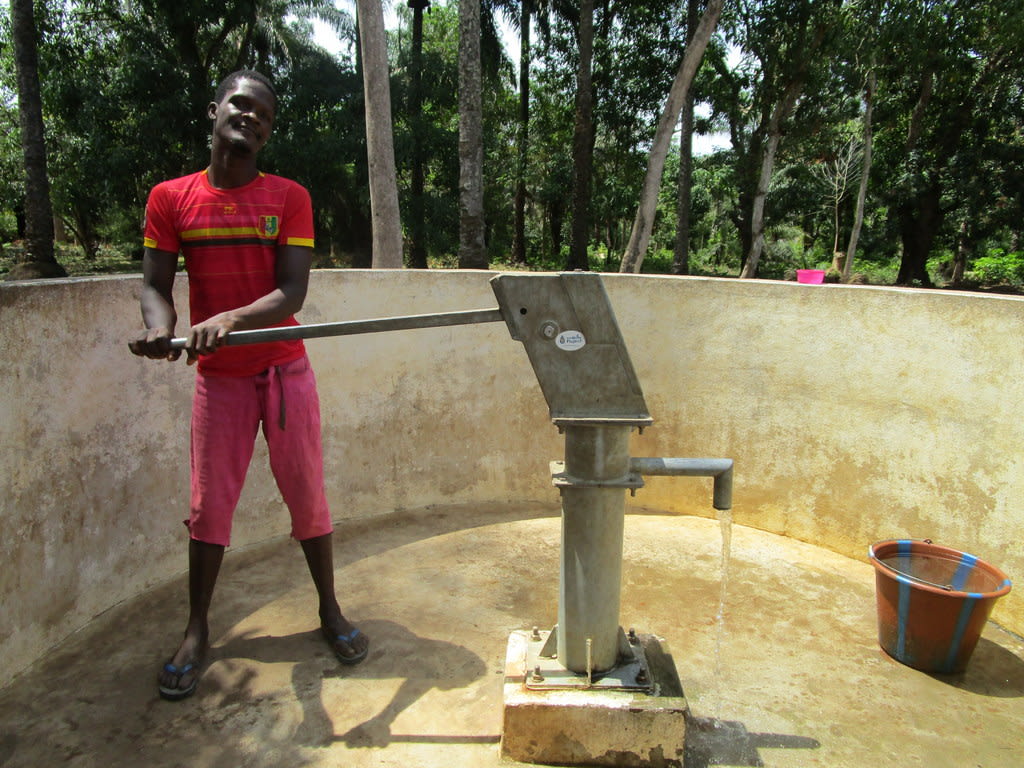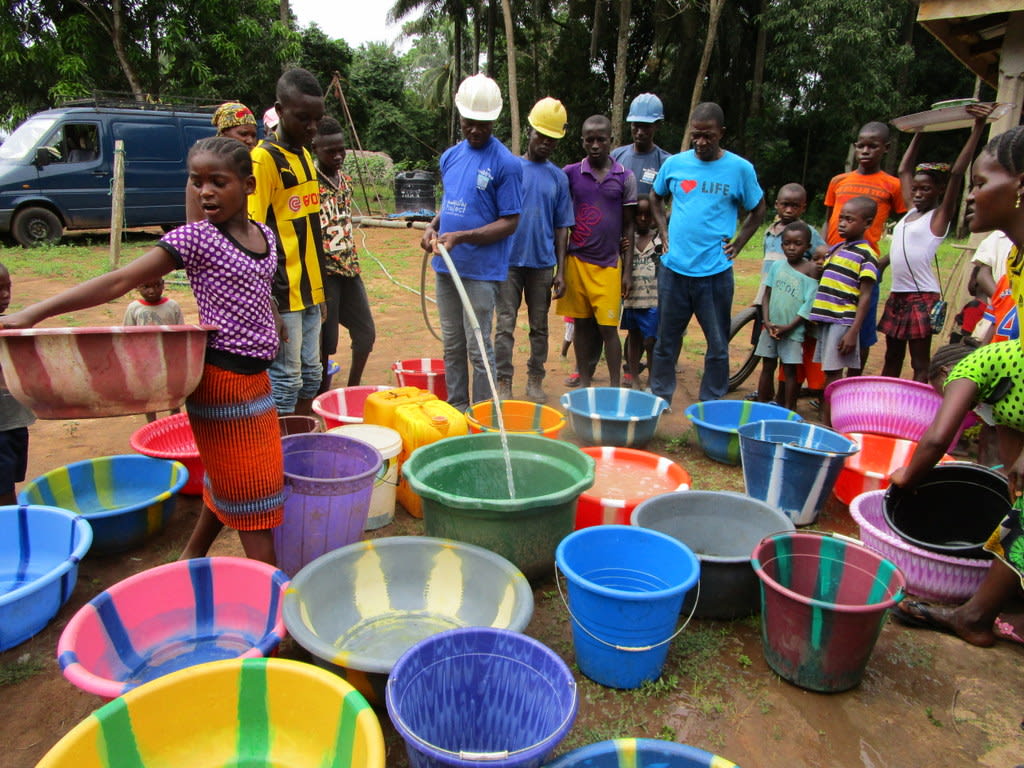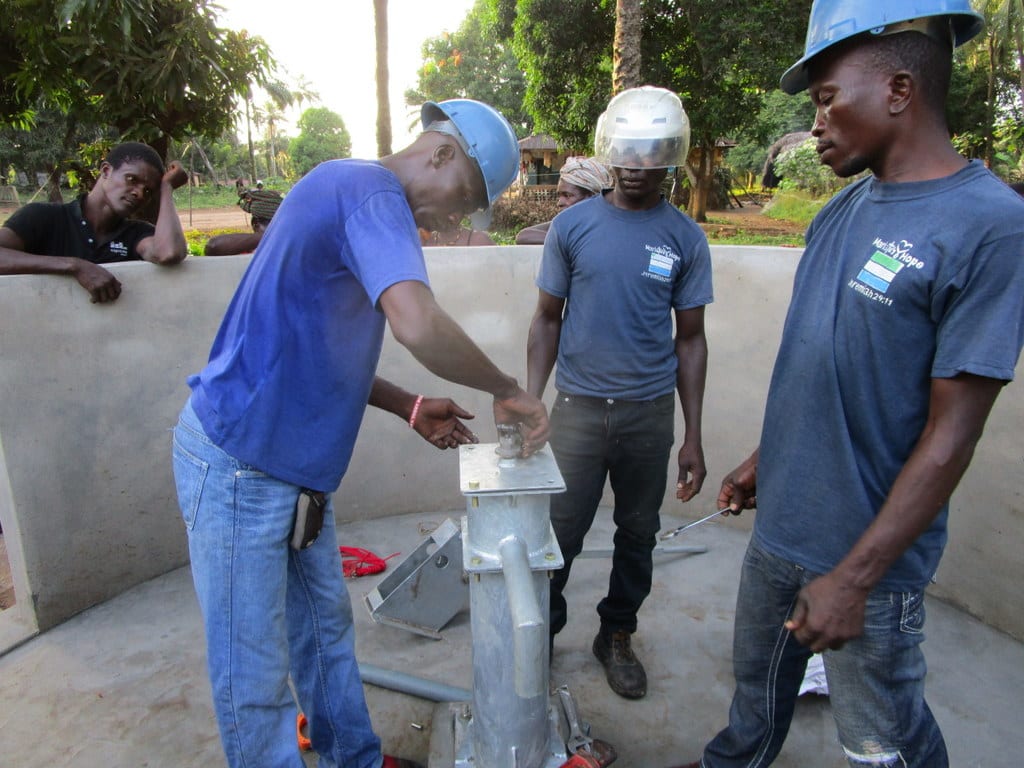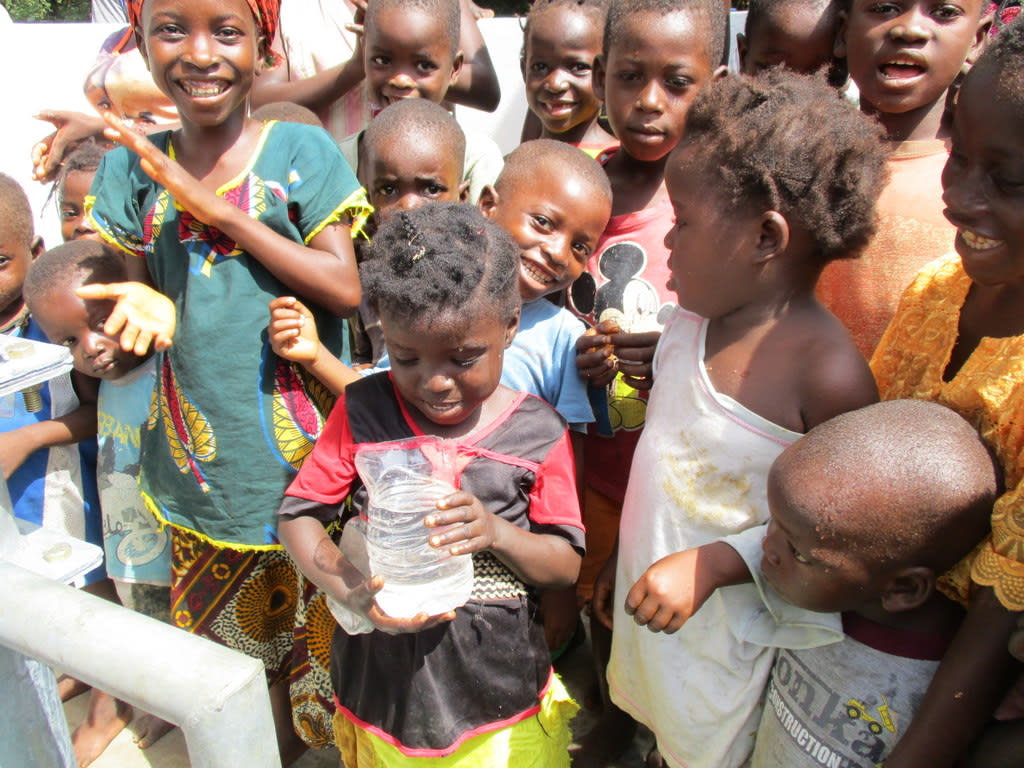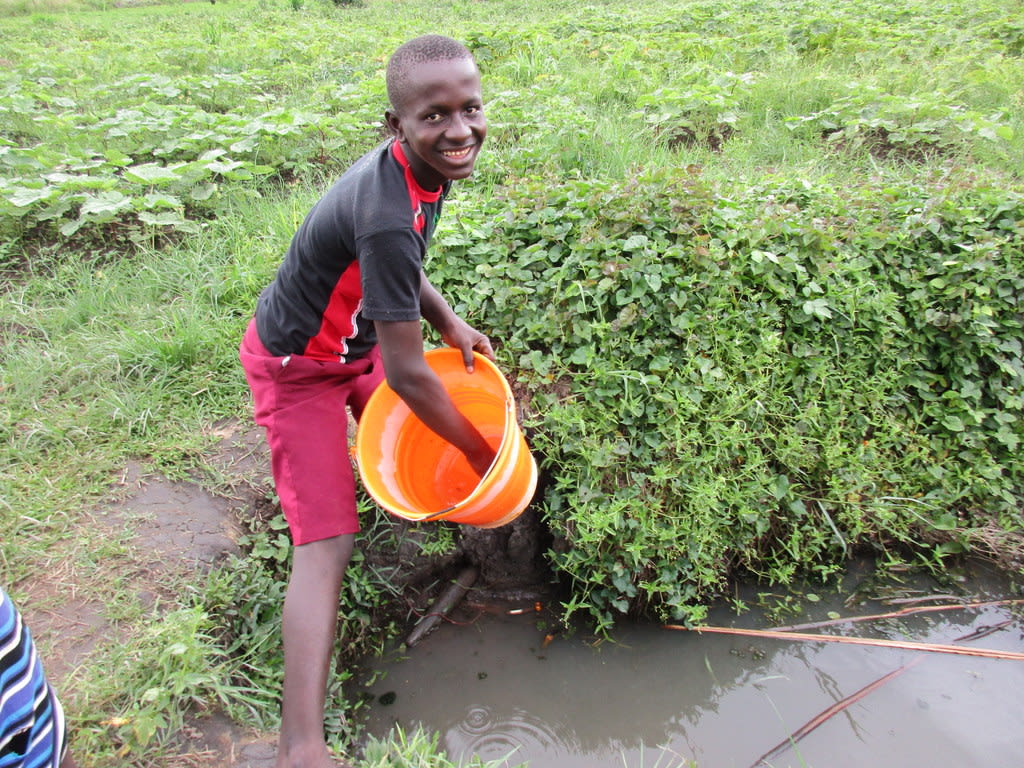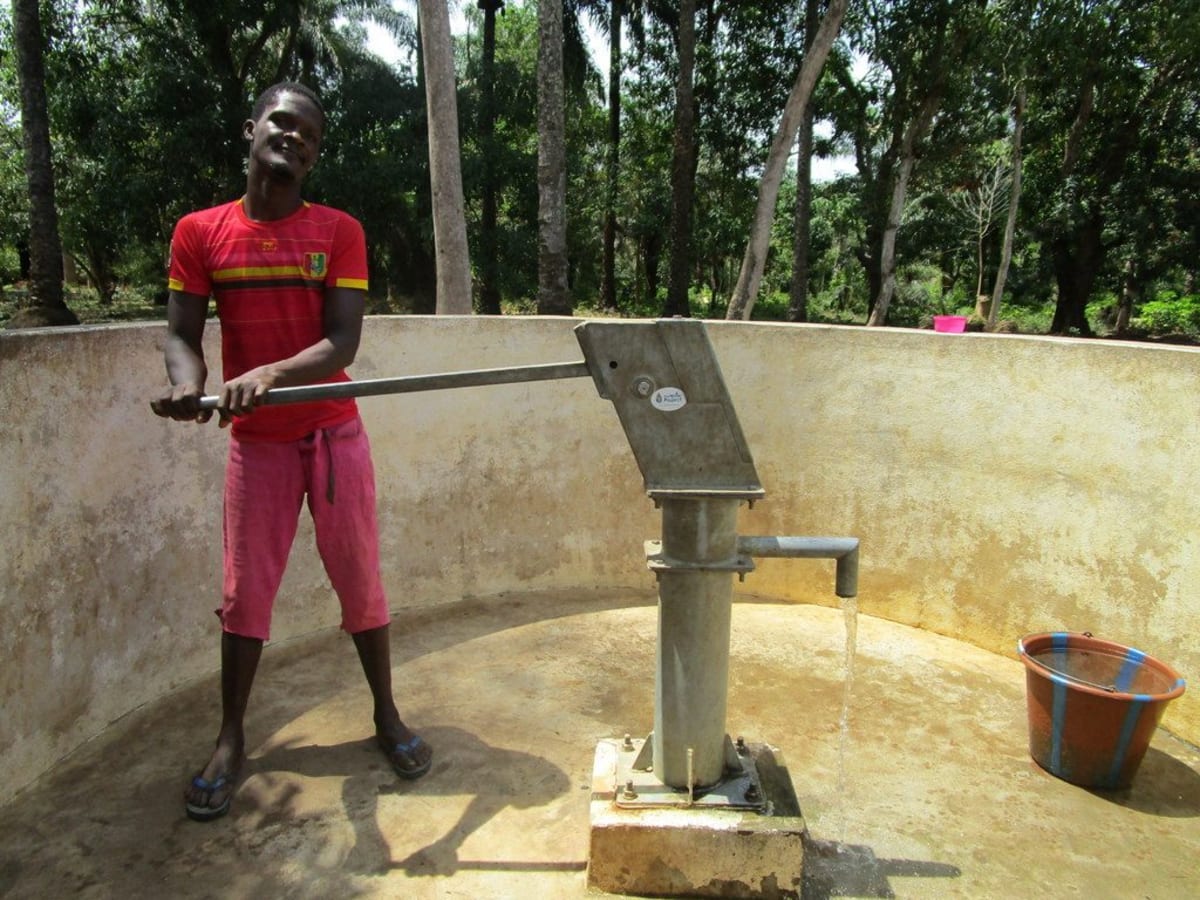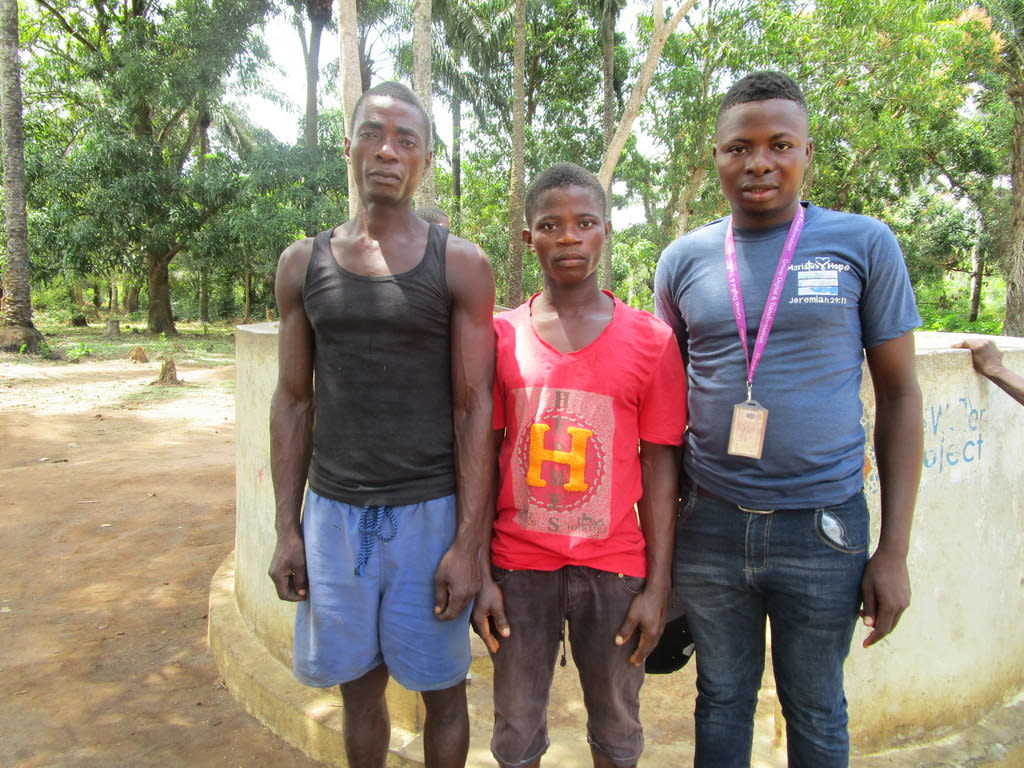This project is a part of our shared program with Mariatu’s Hope of Sierra Leone. Our team is pleased to directly share the below report (edited for clarity, as needed).
Welcome to the Community
The meaning of Tardie in the Bullom language is "small village."
According to village history, Pa Kabba originally migrated from Guinea. When he entered Sierra Leone, he first settled in Mayaya and later moved to Tardie. As time went on, he was joined by others and their families. They were the five households to settle and name their village "Tardie." Along the way, the Bullom language, as well as the Susu language, gradually died out. Because of intermarriages, the inhabitants of the village today are mostly Temne and Susu people.
From the early days of Pa Kabba, Islam has been the only religion here.
Main activities for women in the village have always been gardening and farming swampland. From their gardening they produce onions, okra, peppers, cucumbers and other vegetables. Most of the men here are fishermen who travel one mile to Pewullay to fish.
Tardie is nicely planned. There is a road which runs down the center of the village leading straight to Katelleh. Before entering Tardie, there is a field that the children use as a playground. It's normal to see these children without shoes.
Vehicles, motorbikes, and travelers by foot frequently used the road passing through Tardie. It is interesting to note that there are only 21 houses in this village, which is a surprisingly small population for such a convenient area.
Their normal activities besides those already mentioned are marriages, naming ceremonies, secret societies like Bondo and Wujeh, football matches between villages. They also celebrate Ramadan. At the end of the day, community members will break their fast together, and at the end of Ramadan, there is an even bigger celebration.
Water Situation
A lot of activity takes place at the swamp. There are gardens, kids at play, and wild animals in and out to quench their thirst. Locals have dug a deep hole whereat they fetch water for drinking, cooking, and cleaning. The water that pools in that hole is a milky white color, and obvious sign that the water is highly contaminated.
Most people use open buckets that they either dunk under the water or bail water into to fill. Once full, the bucket is often lifted onto the head for the walk back home. Water for drinking is normally stored up on a table, while water for cooking and cleaning is stored in the kitchen.
After drinking this water, people suffer from diarrhea, cholera, worms, and typhoid.
Sanitation Situation
One of the conditions to the drilling of a new borehole is that every household must have a latrine. At this point, each household has met that condition. Some are constructed with mud blocks and palm branches, while others are constructed out of all thatched palm branches, the native way. But children still defecate out in the open, which is a normal site in Sierra Leone.
We always try our best to have a close relationship with local leadership, because they are the ones who can really drive the community to participate, change behavior, and take care of their new water source. We met with Headman Osman Kamara, who also makes a living working on his farm. "Basically, the health situation in this community as we were told and observed is not encouraging. All seasons round the year, children, as well as elderly ones, seldom wear footwear. They are therefore exposed to a lot of health hazards. Children are often affected with malaria, dysentery and diarrhea. The water source is not clean. The containers used are not cared for and as a result, they can often contract typhoid fever and other waterborne diseases. Their health condition is not too poor and at the same time not up to expected African standard."
Plans: Hygiene and Sanitation Training
There will be hygiene and sanitation training sessions offered for three days in a row.
The hygiene and sanitation trainer decided it would be best to teach community members how to build a tippy tap (a hand-washing station built with a jerrycan, string, and sticks). They will use these tippy taps for hand-washing demonstrations, and will also teach about other tools like dish racks and the importance of properly penning in animals. Pictures will be used to teach the community how to discern between healthy and unhealthy hygiene and sanitation practices.
These trainings will also strengthen the water user committee that manages and maintains this well. They enforce proper behavior and report to us whenever they need our help solving a serious problem, like a pump breakdown.
Plans: New Well
As of right now, a drill location has not been decided upon. As we get closer to the start date, we will hold several meetings with the community so that they can point out locations where they’d like the well. We will discuss this with them and find the best and most suitable place with equal access to the entire community making sure that everyone is in agreement.
Our team will drive over the LS200 mud rotary drill rig and set up camp for a couple of nights. Once the well is drilled to a sufficient water column, it will be cased, developed, and then tested. If these tests are positive, our mechanics will install a new India Mark II pump.
This community has been drinking dirty swamp water and suffering the consequences. By drilling this borehole, Tardie Community will be provided with plenty of safe drinking water.

 Borehole Well and Hand Pump
Borehole Well and Hand Pump
 Rehabilitation Project
Rehabilitation Project










